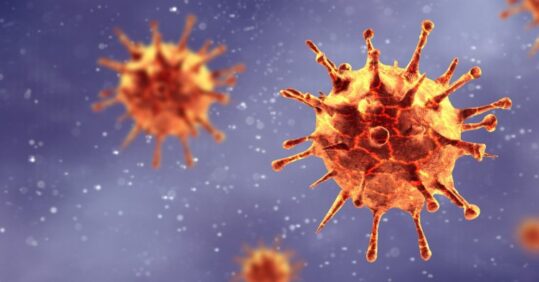‘Asymptomatic Covid increases certain immune cells’

A differing immune response has been found in asymptomatic cases compared to more severe cases of Covid-19.
Researchers from the University of Newcastle found raised levels of specific immune cells in asymptomatic people with Covid, in a study published in the journal Nature Medicine. They discovered people with more severe cases of Covid-19 had lost these protective cell types and gained inflammatory ones.
Related Article: NHS 10-year plan: What does it mean for nursing?
This is the first time the body’s overall immune response has been analysed, rather than the blood immune response, giving a molecular explanation for how Covid-19 can cause blood clotting and inflammation in the lungs.
Covid-19 has a wide range of symptoms, from a mild cough to organ failure. Understanding the varying immune responses to the virus will enable healthcare workers to use targeted treatments and develop specific therapies in the future.
The researchers sequenced over 800,000 immune cells in blood analysed from 130 people in the UK who were infected with Covid-19. The analysis showed that multiple types of immune cells are involved in the body’s response to the virus.
Professor Muzlifah Haniffa, a senior author of the study and professor of dermatology and immunology from the University of Newcastle, said: ‘The immune system is made up of lots of different groups of cells, similar to the way an orchestra is made up of different groups of instruments, and in order to understand the coordinated immune response, you have to look at these immune cells together.’
Related Article: Funded nurse workforce plan needed for neighbourhood health services
In people with no symptoms, the researchers found increased levels of immune cells such as B cells and helper T cells. The B cells produce antibodies against Covid-19 and are found in mucus membranes such as the nasal passage, which may be one of the body’s first line of defence against the virus.
In people with severe Covid-19 symptoms, the immune cells found in asymptomatic people were missing. The researchers also found increased numbers of cells that cause inflammation, such as monocytes and killer T cells. Patients with severe Covid-19 infections were found to have raised levels of platelet producing cells, which help the blood to clot.
Related Article: Over one million children living in homes causing asthma and chronic illness
It is not yet understood how the infection stimulates these immune responses.
Dr Sarah Teichmann, senior author and co-chair of the Human Cell Atlas Organising Committee, added: ‘This information can be used to better understand why different people react to coronavirus in different ways. The data is openly accessible and can provide a basis for developing potential new therapies, to reduce the spread of the virus, or to protect those who start to develop severe disease.’

See how our symptom tool can help you make better sense of patient presentations
Click here to search a symptom




